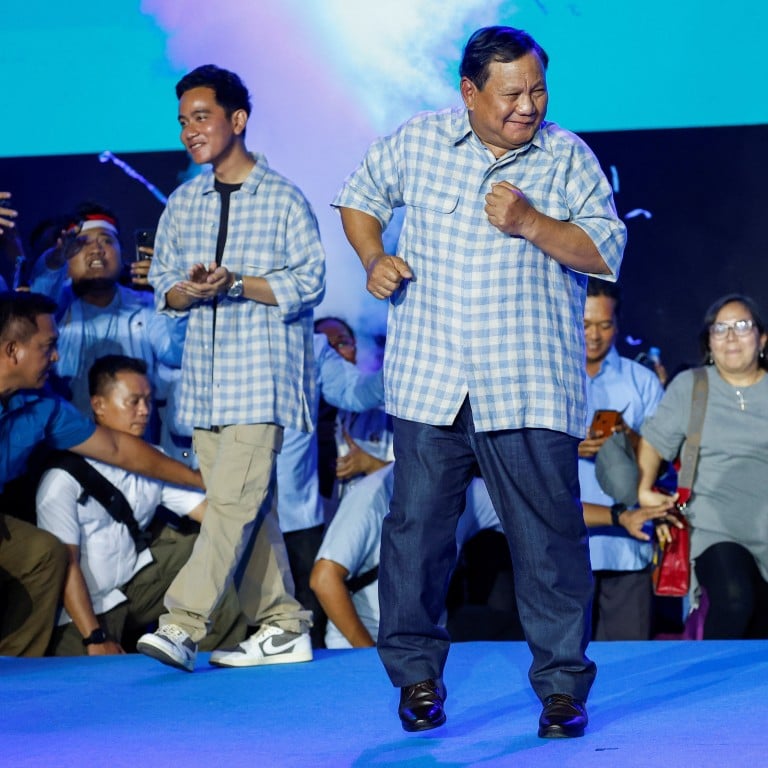Indonesia’s New Dawn: President Elect Prabowo Subianto’s Plans and Their Global Business Implications
The 2024 Indonesian Presidential Election marked a significant event not only for Indonesia but also for the international business landscape. The candidates in the race included Prabowo Subianto and Gibran Rakabuming Raka, Ganjar Pranowo and Mahfud MD, and Anies Baswedan and Muhaimin Iskandar, each bringing distinct agendas and visions for Indonesia’s future.

Indonesia’s Defence Minister and leading presidential candidate Prabowo Subianto with his running mate Gibran Rakabuming Raka. Photo: Reuters
Election Outcome and the President’s Agenda
While the election’s outcome is a culmination of the Indonesian people’s will, the president-elect’s agenda is expected to significantly influence both domestic and international business environments. The candidates had varying approaches: Prabowo and Gibran aimed to continue President Jokowi’s infrastructure projects and economic initiatives, aiming to position Indonesia among the world’s top five economies by 2045. Prabowo’s promises included building three million new homes and initiating a free lunch program for schoolchildren to combat stunting.
Ganjar Pranowo and Mahfud MD focused on social issues and improving the lives of ordinary Indonesians, emphasizing wider distribution of social assistance and raising salaries for civil servants, teachers, and lecturers. Their approach indicates a potential increase in social spending that could affect fiscal policies and government spending priorities.
Anies Baswedan and Muhaimin Iskandar, on the other hand, proposed a vision to make Indonesia “just and prosperous,” with plans to build 40 new cities and cancel Jokowi’s Nusantara project. Their focus on equal opportunities for small business owners and job creation could result in significant changes in business regulations and economic policies.
Implications for International Business and Procurement Under President Prabowo Subianto
With Prabowo Subianto’s victory in the Indonesian presidential election, international businesses are keenly observing how his policies will shape the economic landscape of Indonesia. Prabowo has indicated his intention to continue with the ambitious infrastructure projects initiated by his predecessor, Joko Widodo. This includes the project of moving the capital from Jakarta to Nusantara on the island of Borneo.. Additionally, Prabowo’s commitment to making Indonesia one of the world’s top five economies by 2045 suggests a conducive environment for foreign investment and expansion, particularly in manufacturing.
Anticipated advancements in manufacturing industries include construction, defense, automotive, electric vehicles (EVs), and electronics. These sectors are likely to see progress in various components such as building materials, defense equipment, automotive parts, batteries and components for EVs, and electronic devices and semiconductors. This evolution is crucial for the international procurement community as it opens up new avenues for sourcing materials and technologies. The automotive and EV sectors may expand due to global shifts towards cleaner energy and Indonesia’s significant nickel reserves, essential for EV batteries, attracting foreign investment and technology transfer. Similarly, the electronics industry could benefit from increased demand for digital services and consumer electronics, coupled with government incentives to boost local production and reduce import dependency. These developments signal new procurement and partnership opportunities for international firms in these evolving sectors.
For international procurement in sectors like construction, defense, automotive, and electronics, the focus shifts to identifying new Indonesian suppliers and adapting to local regulations. Companies will need to form local partnerships and align their sourcing strategies with Indonesia’s growing industrial landscape, particularly in emerging areas like electric vehicles. This involves staying adaptable and leveraging Indonesia’s resources and manufacturing growth to optimize global sourcing.
Development Initiatives
The president-elect’s plan to build three million new homes across Indonesia highlights a focus on housing and real estate development. This initiative not only opens doors for international real estate developers and construction companies but also for businesses in the building materials sector. Furthermore, Prabowo’s strategy to combat stunting through a free lunch program for schoolchildren may increase demand in the agricultural and food production industries, affecting the agribusiness sector positively.
Trade Policies and International Relations
Prabowo’s approach to foreign relations and trade policies will be crucial in shaping Indonesia’s engagement with the global market. Businesses involved in trade should closely monitor any shifts in Indonesia’s trade agreements and regulatory frameworks, as these could influence market access and tariffs. The new administration’s stance on international collaborations and regional security will be crucial in determining the country’s trade dynamics and investment climate.
Focus on Defence and Security
As Indonesia’s Minister of Defense, Prabowo Subianto significantly enhanced the country’s defense sector, focusing on self-reliance by promoting local defense production and reducing foreign dependency. He modernized the military, supported indigenous weapon system development, and improved the production of defense equipment in Indonesia. Prabowo also worked to strengthen Indonesia’s military relationships globally, engaging in defense diplomacy and negotiating agreements to strenghten the nation’s security posture. Additionally, he addressed emerging security threats like cybersecurity and maritime challenges, adapting Indonesia’s defense strategies to contemporary global threats. Given Prabowo’s background as a former defence minister, there might be an emphasis on strengthening Indonesia’s defence and security apparatus. This could mean increased opportunities for international defence contractors and security service providers, as investments in military and defence infrastructure are anticipated.
Social and Economic Equity
Prabowo’s initiatives aimed at social equity, such as the school lunch program, indicate a government focus on reducing inequalities. This particular program not only aims to address immediate nutritional needs among schoolchildren but also reflects a broader commitment to reducing social inequalities. By ensuring that children receive at least one nutritious meal per day, the initiative can contribute to improved health and educational outcomes, which are critical components of social equity. This might lead to enhanced government expenditure in healthcare, education, and social services, offering opportunities for businesses operating within these spheres.
Prabowo Subianto’s presidency marks a new chapter for Indonesia, impacting both local and international businesses. His policies may boost sectors like construction, defense, and manufacturing, aligning with his goals of infrastructure growth and economic nationalism. However, businesses might face a protectionist climate, stricter regulations, and challenges for foreign investors. Yet, Prabowo’s practical foreign policy and focus on economic growth could still create a stable environment for business, with a continued openness to foreign investment, prioritizing national benefits.


